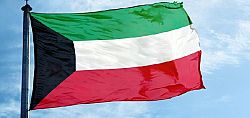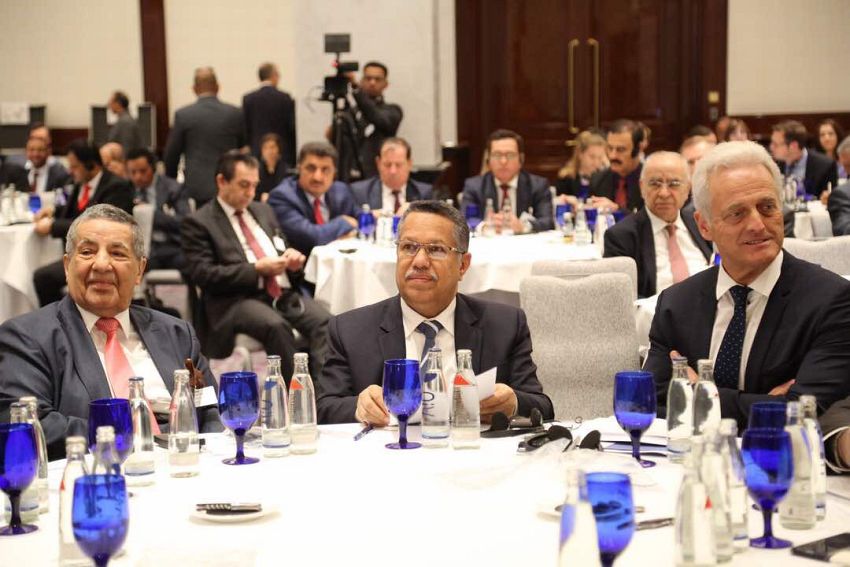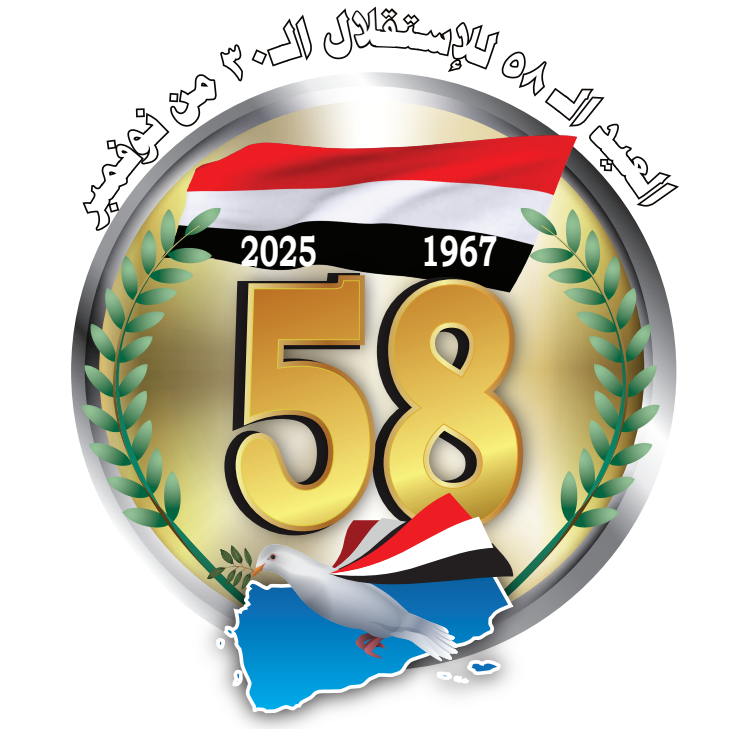
Yemen Announces Full Support for Statement Issued by GCC Ministerial Meeting
The Republic of Yemen has announced its full support for the statement issued at the extraordinary ministerial meeting of the Gulf Cooperation Council (GCC), which affirmed a unified and firm position to deter what it described as blatant Iranian aggression against GCC member states.

Kuwait Condemns Iranian Attack Targeting Its Territory
The State of Kuwait has strongly condemned a “heinous Iranian attack” that targeted its territory on Saturday morning, calling it a flagrant violation of Kuwait’s sovereignty, airspace, international law, and the Charter of the United Nations.

Korea large companies' exports rise 10 percent
Large companies' exports in South Korea rose approximately 10 percent year-on-year in the fourth quarter of last year, driven by increased global demand for semiconductors.

Saudi League: Al-Nassr, Al-Ettifaq and Neom Secure Victories Over Al-Ittihad, Damac and Al-Riyadh
Al-Nassr defeated its guest Al-Ittihad 2–0 in the match that brought them together at Al-Awwal Park Stadium in Riyadh, as part of the 21st round of the Saudi Professional League.
Last Update: ،
2026/03/02
Time
10:55:35
Latest News:
 Marib Deputy Governor Discusses Humanitarian Interventions with Turkish Associations
Marib Deputy Governor Discusses Humanitarian Interventions with Turkish Associations
 Cabinet approves draft budget for fiscal year 2026
Cabinet approves draft budget for fiscal year 2026
 Finance Minister signs with Ambassador al-Jaber new Saudi support agreement for Yemen
Finance Minister signs with Ambassador al-Jaber new Saudi support agreement for Yemen
 Prime Minister Receives Letter from Italian Deputy Prime Minister
Prime Minister Receives Letter from Italian Deputy Prime Minister
 Yemen Strongly Condemns Blatant Iranian Attacks on Saudi Arabia
Yemen Strongly Condemns Blatant Iranian Attacks on Saudi Arabia
Latest News:
 Marib Deputy Governor Discusses Humanitarian Interventions with Turkish Associations
Marib Deputy Governor Discusses Humanitarian Interventions with Turkish Associations
 Cabinet approves draft budget for fiscal year 2026
Cabinet approves draft budget for fiscal year 2026
 Finance Minister signs with Ambassador al-Jaber new Saudi support agreement for Yemen
Finance Minister signs with Ambassador al-Jaber new Saudi support agreement for Yemen
 Prime Minister Receives Letter from Italian Deputy Prime Minister
Prime Minister Receives Letter from Italian Deputy Prime Minister
 Yemen Strongly Condemns Blatant Iranian Attacks on Saudi Arabia
Yemen Strongly Condemns Blatant Iranian Attacks on Saudi Arabia
Yemen's bin Daghr participates in Arab-German Business Forum
[16/05/2017 01:54]
Berlin, (Saba)- Prime Minister Ahmad Obeid bin Daghr has argued on improving commercial exchange between Arab countries and Germany and opening new horizons to boost common interests between Arabs and Germans.
"Yemen will restore its unity as Germany did in 1990 and while we follow up covetously what Germany has achieved of national integration and social peace during steps of unity, we unfortunately experience catastrophic situation in Yemen over political clashes and desire of power and wealth monopoly by a group rebelled against the legitimacy and violently seized the capital and parts of the country, " said bin Daghr in a speech he delivered while participating in the opening session of the 20th Arab-German Business Forum.
He confirmed determination of boosting Yemeni-German relations and German Arab relations saying;" the figure € 50 billion of the trade exchange expresses another deepness of relations between Arabs and Germans, a matter we commit ourselves to improve it in the future."
He reviewed the political process in Yemen since 2011 and the role of Arab and foreign countries, Germany one of them, on bringing Yemen into the dialogue after power transfer in 2012 and lasted for nearly a year. All Yemeni problems were discussed and the dialogue came out with a document signed by all participating Yemeni spectrum, including Houthi group and Saleh's party. The document was sponsored by the United Nations and the Security Council held a session in Sana'a for supporting this document.
The document was followed by a constitution draft included all the outcomes of the dialogue and drafted by all Yemeni political powers including Houthis and Saleh under experts from different world countries, including Germany. The constitution states on a project of Federal Yemen of six regions.
" Unfortunately, what is happening now of clashes and wars are the result of rebellion against these Yemeni agreements, on the day named for handing over the constitutional draft in September 2014 for preparations for referendum and conducting presidential and parliamentarian elections on these foundations, the coup on the national consensus took place and Houthis and Saleh's forces seized the state's institutions by force, stormed government bodies and put President Abdu Rabbu Manshour Hadi and consistence government under house arrest," said bin Daghr.
When the president fled to Aden, rebels started their incursion to the cities of the country, he added, and attacked the Presidential Palace in Aden, where the president was residing in. He talked about interference of the Saudi-led Arab Coalition made under the UN resolution 2216 for upending the coup and restoring the state.
He reviewed conditions of Yemen since the start of the coalition's military operations and the aftermaths of Houthi-Saleh's wars on the people causing catastrophic conditions.
"We, as a state and institutions, never seek the war and never want it to continue, we are peace advocates but we need just and inclusive peace ending the conflict," said Prime Minister bin Daghr.
He talked about his government's efforts on alleviating aftermaths of the war, support of donors for relief in Yemen and plans of his government for reviving the economy and reconstruction.
Key words:
parliamentarian - constitutional - reconstruction - participating - determination - unfortunately - Unfortunately - institutions - government's - Presidential - Cabinet approves draft budget for fiscal year 2026
Cabinet approves draft budget for fiscal year 2026 Finance Minister signs with Ambassador al-Jaber new Saudi support agreement for Yemen
Finance Minister signs with Ambassador al-Jaber new Saudi support agreement for Yemen Yemen Strongly Condemns Blatant Iranian Attacks on Saudi Arabia
Yemen Strongly Condemns Blatant Iranian Attacks on Saudi Arabia  Republic of Yemen Condemns Iranian Attacks on Several Sisterly States
Republic of Yemen Condemns Iranian Attacks on Several Sisterly States Prime Minister Receives Letter from UNESCO Director-General
Prime Minister Receives Letter from UNESCO Director-General International Association (Al-Ameen) Provides over 9,000 Medical Services During January 2026
International Association (Al-Ameen) Provides over 9,000 Medical Services During January 2026 President al-Alimi Congratulates Dominican Republic on its Independence Anniversary
President al-Alimi Congratulates Dominican Republic on its Independence Anniversary PM Orders Immediate Payment of Salaries for Civil Servants, Military Personnel
PM Orders Immediate Payment of Salaries for Civil Servants, Military Personnel President Al-Alimi: New Saudi Support is Additional Message of Promising Strategic Partnership
President Al-Alimi: New Saudi Support is Additional Message of Promising Strategic Partnership Prime Minister Expresses Deep Appreciation for New Saudi Support
Prime Minister Expresses Deep Appreciation for New Saudi Support


